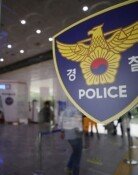Water Treatment Market Becomes Attractive
Water Treatment Market Becomes Attractive
Posted August. 20, 2007 03:02,
The Kolon Group took over the Environmental Management Corporation, which runs about 20 percent of Koreas water treatment facilities, for 54 billion won at the end of last year. Group chairman Lee Woong-yeul said, Marking the companys 50th anniversary, the company decided to pursue the water treatment business as its new growth engine. The current 250 billion won worth of water sales will be raised to 2 trillion won by 2015.
Samsung Engineering Co. recently accepted an order from United Arab Emirates to build a 50 billion won wastewater disposal plant at the end of June this year, and plans to make inroads into the Middle East, where the market for freshwater technology has been booming.
Domestic companies are competing with each other to grasp the lucrative water supply and drainage market. The governments announcement to transfer operation and management for either a portion or Koreas entire water supply and treatment system to private companies by 2012 was made last month. Through this privatization program, the government is hoping to nurture its domestic businesses toward becoming one of the worlds leaders in water treatment technology. Advanced countries like the U.S., France and U.K. left their water industry in the hands of private sector long ago.
Tap water service will be privatized-
Samsung Engineering lunched a joint corporation with Veolia Water, the No. 1 water company in the world, to run wastewater facilities for the first time in Korea. Tae-young Construction is operating 38 water sewage plants across the country after establishing a subsidiary in 2004 for sewage disposal treatment. Daewoo and Hanwha Construction are also involved in running water service and sewage treatment facilities.
The government opened the sewage treatment sector to private sector businesses starting in 2000 in an attempt to enhance efficiency. Out of 318 water treatment facilities nationwide, 192 are now run by private companies.
The enormous potential of the tap water market, whose scale is three times that of the sewage industry, is driving a host of business to jump into the water treatment industry. They believe that the tap water market will soon open its door to private companies. The water supply and treatment business accounts for 10 trillion won out of the entire 11 trillion won domestic water industry. Although many people regard water industry as just the bottled water industry, the drinking water market share is only about 400 billion won.
Large enterprises are watching the movements of developing countries markets, which have been rapidly liberalizing in China, and the Southeast Asian region. Doosan Heavy Industries & Construction, the No.1 company in the world in terms of building freshwater facilities, and Tae-young Construction are expanding their overseas operations, especially in the Middle East.
Most European markets are mature-
The government has begun to feel the urgent need to grow the domestic water business to vie with overseas companies. In particular, opening the domestic water market will be inevitable when the country reaches an FTA agreement with Europe, where many global water companies are located.
Private companies dominate the water industry in most European countries including the U.K., France, and Italy, The revenue sales of Veolia, and Suez, the worlds leading water companies, reached 32 trillion won, and 50 trillion won in 2005, respectively.
The Korean government estimates that the elimination of inefficiencies by privatizing the water market could save 570 billion won each year. However, there is still mounting criticism over the governments plan for privatizing the industry. Many people suspect that the measure could drive up the price of water.
The government must come up with ways to help domestic water companies defeat foreign businesses, and at the same time, the water industry within the nation should do its best to catch up with their overseas rivals, said Shin Jun-seok, a researcher at Samsung Economic Research Institute.
larosa@donga.com chance@donga.com







